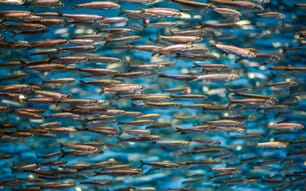Bertie Armstrong, SFF chief executive, says: “We are not complacent and we do recognise that there are problems to be tackled. This is why Scottish fishermen have been taking the lead in ensuring that stock conservation and sustainable fishing are at the very heart of our operation.
“It is not appropriate for the film to draw overall and therefore superficial conclusions from global statistics and then infer they apply everywhere. There are huge regional differences and in general terms in Scotland, a recovery of stocks, including North Sea cod, has been underway in response to real measures by the Scottish fleet. A major focus of the film is on bluefin tuna, which of course does not exist in our waters. There is no doubt that some fish stocks around the world are in an imperilled state and require urgent remedial action. Consistent progress in Scottish waters points towards the way that this may be achieved.
“Almost all of our main fish stocks have either achieved Marine Stewardship Council independent accreditation or are in the process of becoming accredited as being a sustainable and well managed resource. The majority of the Scottish fleet is also part of the Seafish Responsible Fishing scheme, signalling our commitment to a sustainable future.”
A comprehensive and growing list of conservation measures are already in operation, spearheaded by the Scottish fleet. These include:
- Two large decommissioning schemes in 2001 and 2003, which has resulted in a 65 per cent reduction in the Scottish whitefish fleet. Further decommissioning schemes, subject to careful analysis of need, remain a possibility.
- The adoption of an active system of closed geographical areas to fishing to protect juvenile and spawning fish – there have been 56 such closures in Scottish waters in 2009 to date.
- Working closer than ever before with government and marine scientists to ensure efficient stock monitoring. This includes the direct administration by the SFF over the last year of four extra fisheries observers on fishing vessels to help with essential scientific data gathering.
- Trialling, developing and adopting a wide range of fishing gear measures, including increased mesh sizes and escape panels in trawls to release under-sized and unwanted fish species.
- Working in partnership with scientists to develop new and more selective designs of trawls.
- Participation in independent eco-label certification schemes such as the gold-standard MSC.
Bertie Armstrong said: “We recognise that consistent, meaningful, practical work is required to ensure the sustainable harvesting of food from the sea. Our future depends on it and the public can depend on the Scottish fishing industry to do it. The “End of the Line” has been described as an inconvenient truth about our oceans. The inconvenient truth for the film is that the tide has turned in the waters around Scotland – is that mentioned?”


